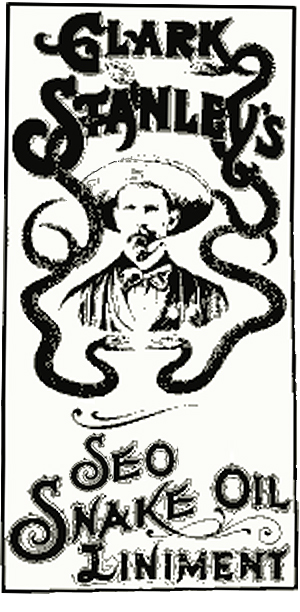
Part 3 Of a 3-Part Series.
The goal of these 3 articles is to give you an understanding of how search engines work and how you can drastically improve your search engine lead generation without wasting another dime on SEO Snake Oil.
In Part 2, we looked at how to organize the meta-data and keyword density of our websites to ensure that we’re are being ‘read’ by the search engines most effectively.
This week, in his final SEO offering, he will be examining the proper approach to building your link popularity; why links work, how to acquire links, what and how many links you should have.
In-bound links, coupled with unique and growing content define the most important factors to increase your search engine visibility.
It should make perfect sense as to why search engines would rank your site due to incoming links. If we relate it to the real estate world, a link is like a referral. If you, as a real estate agent, have a hundred people referring business to you, you are going to be very successful. This must also mean that there is a very compelling reason why you are being sent so many referrals. You must be good at what you do and people must really benefit from you service. Try to look at your website in the very same manner. The more websites that refer to your website, the more valuable your website becomes on the internet. You can also see why having unique and updated content playing an important role in optimizing your site. You are bringing something of
value that is going attract a lot of onlookers.
A very interesting book that I would recommend to everyone looking to better understand their website’s visibility in the search engines is: The Google Story by David Vise. In it Vise explains how Google’s search result philosophy and the topic of link exchange co-mingle. He writes that Google views your website very much as a research paper; similar to one you would have written in school. In your research paper you have referenced other works similar to what I am doing now with these links throughout the article.
These sites that I am referencing must have some greater importance on the subject matter that I am discussing given that I am referring you to them. Therefore, if your site is being referenced by thousands of other sites on the internet, you are going to drastically move up in the search engines, based on the assumption that you are recognized as an authority on the subject matter they are using you to help describe.
How popular is my site already you ask? Well there are several ways you can check, one is by just going to Google and search the following: link:www.yourwebsitehere.com. This will tell you everyone who is linking to you, according to Google. Also try going to www.linkpopularity.com or SEOLogs link popularity tool.
Let’s look at some ways to correctly link your website:
A. Natural Links vs. Artificial Links
We need to discuss Natural Links vs. Artificial Links because back when search engines were still under sophisticated, there were a lot of companies selling links. They are called link farms. Search engines have corrected this loophole and this ‘black hat‘ strategy no longer helps. To avoid being black listed from the search engines for link farming, simply do not participate in link farming, or the process of adding a several links at a time. To correctly add links you want to make sure of three things:
1. Anchor Text Varies
An anchor is a link and looks very similar to this <a href=https://www.realestatetomato.com>Place Any Text Here</a>. The ‘a’ stands for anchor, the ‘href’ stands for hypertext reference, and the ‘any text’ is your anchor text. To vary your anchor text simply means you want to make sure that every link on your site does not say something like “San Diego Real Estate and Homes for Sale.” This is a flag for link farms; multiple links that all saying the same thing.
2. Link Count Increases Gradually
Again you don’t want to add a hundred links to your site over night. This is another red flag or alarm that goes off if you are looking at it from the search engines point of view. Your link aggregation should increase gradually to give the effect that you did not acquire them all at once.
3. Link To Reputable Pages
It is important to link to appropriate pages. Now I don’t know how much this comes into consideration but it is important to try and link to cached pages. A “cached page” is a page on a site that has been indexed and saved into the Google/Yahoo/MSN/etc. database. Google’s goal is to actually download the entire internet on to their servers. Quite a task I agree, but they are continually spidering the net for new information. Now cache means memory, so a cached page is simply one that has been saved. How can you tell if a page has been cached? Simply take the page and enter it into Google. If you get an error that says “Sorry no information is available for the URL,” then it is not a cached page.
B. Link to PR=5 or better
According to Google, not all links are weighted equally. If Yahoo, the most frequented site in the world, had a link to your site on their homepage, you would instantly shoot to top of the search engines because of Yahoo’s importance or Page Rank. PR stands for Page Rank (and not page as in web page but actually Page as in Larry Page, one of the founders of Google who developed the ranking system). Every page on the net is awarded points and ranked according to their relevance, importance, priority and popularity. To have a PR=5 or better you are actually doing really well. The scale goes from 0 – 10, with 10 being the best. Click here to determine the Page Rank of any website. http://www.prchecker.info/check_page_rank.php. I would also recommend going to www.alexa.com and click on traffic rankings to see where your site ranks.
C. Maintain Consistency
I believe that consistency may be the most important ingredient in the equation of linking. Believe it or not there are six different ways (URLs) to get to the exact same page.
1. http://yoursite.com
2. http://yoursite.com/
3. http://yoursite.com/index.html
4. http://www.yoursite.com
5. http://www.yoursite.com/
6. http://www.yoursite.com/index.html
Unfortunately the search engines see this as six different pages. If when submitting your site for inclusion, you are using different domain names, you are diluting all your efforts. Make sure you choose one way to enter your domain name and enter it like that on every link.
D. Keywords in Anchor Text
On that same note, it is also very important to include your keywords in your anchor text. So if we are optimizing our site for San Diego Real Estate, you want to make sure you are asking the webmaster with whom you are exchanging links to add a link with those keywords in the anchor text. Ex. “Will you please consider adding a link to my site on your page,
<a href=http://www.yoursite.com>For San Diego Real Estate News and Info</a>. Thank you for your time and consideration.”
E. Directories
How and Where do I start?” Probably the best place to start is to submit your site to directories. Some charge for inclusion, but most are free and below is a good list to start:
– http://dmoz.org
– http://www.joeant.com
– http://www.skaffe.com
– http://www.goguides.org
– http://www.sevenseek.com
– http://www.thisisouryear.com
The majority of the information above comes from the book a mentioned above as well as from an article called “12 Essential Strategies for Building & Structuring Inbound Links” by Stephen Mahaney. I would also recommend reading this interview of Mahaney for more information
I also highly recommend that you read the Zeal Style Guidelines, which provides detailed
information about submitting your site to directories. You may also want to read the DMOZ Submit FAQ. Another good resource to check out is ISEDB.com which will help you find other directories that are more specific to your subject matter.
The next step would be to broaden your networking skills online. You are most likely reading this article because Jim has taken the time to network with fellow bloggers. He has contacted the webmasters, stated that he has added a link to them because he really enjoys their content and believes that his site has something of value to bring to the table and asked if they would link back. And, in other cases, they have fund him through some of the links that have been established and they recognize his site of such value that they are simply linking to him a ‘hat tip’ or resource for their readers. Respect in the industry is a great foundation for networking. The blogging world is wonderful platform for this. Do some Google searches for other blogs in related subjects and start networking.
It is now up to you. You are armed with all the knowledge needed to succeed in the search engines, now it is just a matter up setting up a game plan and executing. Don’t plan on making it to the top in one week or even one month, realize that this is going to be a three to four month process (or even longer for you procrastinators), so plan accordingly. This may also seem like a daunting or unrealistic task. I know I hear it all the time; “I don’t have time for this!” Well maybe not. But you can’t win the race if you don’t run. Your commitment can be as little as simply dedicating up to 5 hours a week to following the steps in this 3 part series.
Once you start getting into it, and seeing the fruits of your labor, you will start enjoying working on it. And, you can always contact us if you need some one-on-one training.
This article was authored by Jason Benesch, Director of Technology at the Real Estate Tomato.




